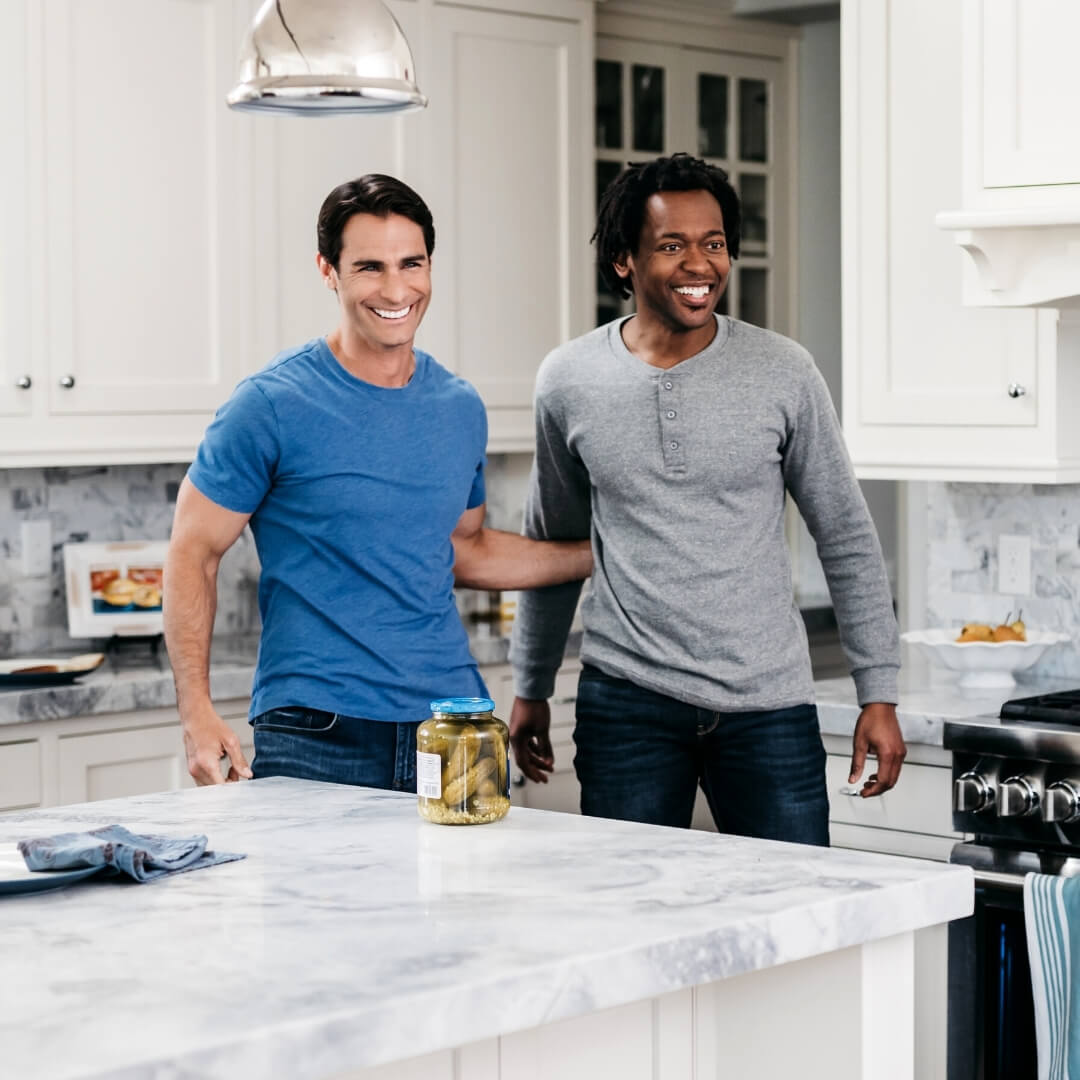Having an accountability partner can powerfully impact your life. They are a critical part of using accountability software effectively. We know because we’ve helped facilitate over one and a half million accountability partnerships for people trying to quit porn.
Here’s the main thing we’ve learned about good accountability partners: The best accountability partners are allies who support and encourage you, who point you away from destructive habits, and toward life-giving decisions.
What Is an Accountability Partner?
An accountability partner is someone who agrees to come alongside another person and help with the progress on their goals. An accountability partner is a trustworthy friend who wants what’s best for you. They may not be the buddy you hang out with on the weekends, but they are a true friend who values what’s good for you and helps you run after it.
We call them “allies” because of the missional component to the relationship. The term “accountability partner” was first used by diet programs. It gained popularity with Christians who saw partnerships as a way to grow spiritually and overcome temptation, particularly with things like pornography. Now, accountability partners have become a regular part of personal growth, business, and leadership.
Why We Need Accountability Partners
We face many consequences throughout life. And the threat of consequences can help make good decisions and avoid harmful behaviors. But for many, the threat of consequences is discouraging–even paralyzing. The threat of consequences may be so overwhelming that a person habitually returns to the harmful behavior, even though they understand what will result.
We see this, particularly with people who struggle with long-standing habits or addictions. One idea of accountability partners is that they’re people in our lives who leverage peer pressure. This peer pressure creates the motivation for positive behavior change.
This can be helpful.
However, peer pressure alone is rarely enough to bring about lasting change. If you feel shame when you meet with your accountability partner, it may even be detrimental to your goals. The best accountability partners are more than just peer pressure. Accountability partners speak the truth without shaming you. They don’t threaten you with punishment if you mess up.
The Bible talks about this kind of accountability frequently:
- “But encourage each other daily, while it is still called today, so that none of you is hardened by sin’s deception.” (Hebrews 3:13)
- “Carry one another’s burdens; in this way you will fulfill the law of Christ.” (Galatians 6:2)
Accountability partners remind, challenge, and encourage you to follow through with what you’ve already resolved to do. You might say an accountability partner is simply a friend who steps in to help change behavior before you reach the “or else” consequence.
4 Characteristics of a Great Accountability Partner
An accountability partner needs to find the right mix of compassionate and tough. They don’t quit because of a relapse, and they leverage their personal experience to encourage and guide their friends.
Those are great characteristics, but let’s get really practical. How does an accountability partner have effective conversations to help their allies achieve their goals?
1. Listen before speaking.
As an accountability partner, the first job is to understand the person being helped. Even for someone entering this relationship as an expert counselor or therapist, they can’t help someone they don’t understand. This happens through ongoing conversations with careful listening. An accountability partner is there to enter a conversation, not give a monologue or lecture.
Porn recovery expert and coach Jeff Fisher said this about his long-term accountability partner:
The best thing he could do was listen, especially early on. He recognized that I was in a very broken place. He could feel my desperation, raw emotion, and fear. His job was to listen and let me talk. Even though he and I go back far in our relationship, he needed me to know that he wasn’t going to leave me and that he cared.
2. Ask open-ended questions.
Often this is as simple as adding a follow-up question that allows more detail.
Instead of stopping after, “Did you do _____ last week?”, partners should try asking: Can you tell me how you felt when you did _____?”, or “How was your day going before you fell back into your unwanted behavior? What emotions were you experiencing?”
For someone who’s really struggling to meet their goals or break a bad habit, these kinds of accountability questions help get to the deeper motivations.
Counselor Brad Hambrick offers more probing questions that partners can ask to go deeper with their accountability relationships:
- What are you doing to enjoy life?
- What new stressors are entering your life?
- Would you like to “just hang out”?
- Who or what is getting too much air time in your thought life right now?
- What are you passionate about in the coming weeks, months, or years? How is it going?
For more, see Brad’s full article, 5 Accountability Questions I Wish my Ally Would Ask Me.
3. Encourage rather than criticize.
If an accountability partner berates and criticizes the person they’re holding accountable, it can be deeply discouraging and detrimental to progress. The role of a partner isn’t to police behavior: it’s to come alongside and encourage good behavior. The partner reminds you of something you’ve both agreed is important.
The mechanism that makes this effective is a combination of positive peer pressure and genuine care–not coercive force or the threat of punishment. If your partnership is based on criticism or negativity, it undermines the power of accountability. Instead, use positive encouragement to power up your conversations.
4. Challenge rather than enable.
We mentioned one of the common pitfalls of accountability is that it’s often reduced to confession: “Well, I messed up again this week.” Confession is good, and there’s something cathartic about admitting failures to a friend. However, if this is ALL that happens in accountability, it fails to tap the real power for positive change.
Good accountability partners do not enable bad behavior. They encourage you but don’t excuse you. The third point (“encourage rather than criticize”) does NOT mean that an accountability partner won’t show tough love or brutal honesty when needed! A good partner challenges people to improve, to hold a higher standard, and to pursue what’s good. This means speaking the truth even if it’s uncomfortable. It means calling out false beliefs, negative attitudes, and destructive choices.
Dr. Peter Kleponis says, “Don’t be afraid to challenge your friend… While these may be difficult conversations to have, they will go a long way in helping.” Dr. Kleponis goes on to recommend balancing out these challenges with affirmation and encouragement. If you do call out a particular behavior or mindset, be sure to also note the things they are doing well.
End the conversation on a positive note!
4 Common Ways Accountability Partnerships Fail
Not all accountability partner relationships are created equal. While they have the power to help you achieve your goals, I’ve also seen cases where accountability has ruined existing friendships. I spoke with a man who had enlisted the help of his friend to quit looking at porn.
After several months, he told me, “I need a new partner. Unfortunately, my friend and I aren’t on speaking terms anymore.” Whatever the statistics are for the success rates of accountability, experience tells us that it doesn’t always work. Why is that?
Let’s take a look at four basic problems accountability partners run into.
1. The accountability partner acts more like the police than a friend.
There’s a place for accountability in the form of an authority figure enforcing consequences for actions (i.e. a police officer), but it isn’t what accountability partners are about. When accountability partners act as the police, the people being held accountable often act like fugitives running from the law.
The heart-to-heart honesty of friends is lost. The relationship trust breaks down. The person being held accountable may avoid contact with their partner or even lie. The partner may become critical or even abusive.
Remember, a key purpose of accountability partners is to bring in positive peer pressure, encouragement, and the cathartic benefit of sharing your struggles. If you’re a fugitive, you’re hiding, not sharing your struggles. If you’re acting as a police officer, you’re no longer a peer, not necessarily encouraging, and probably not a safe person to share struggles with.
2. The goals are too general.
Accountability relationships fizzle out when it’s unclear what’s supposed to happen and when. I can’t tell you how many times I’ve seen this. Once I helped start an accountability group for writing. We were all supposed to write short stories and then share them together.
Not a single one of us finished!
The problem was that we didn’t have a clear enough plan. Even though the goal seemed simple and attainable–“write a short story”–it was actually too big and too general for where we were as writers. As a result, the group fizzled and no one finished writing anything. We needed smaller, more manageable goals and a specific plan for getting there.
3. Accountability meetings are infrequent or sporadic.
You need to schedule meetings with enough frequency to be effective. Without accountability meetings, your accountability partnership is bound to fail.
Once I was helping a friend who wanted to make some positive life changes. He was doing great for several weeks and we were both excited about his progress. Then we got busy and canceled a few of our meetings. I didn’t worry too much because he had been doing so well. But before I knew it, nearly a month had gone by, and my friend had slipped back into the bad habits he was trying to overcome.
4. The accountability conversations are merely routine.
Imagine this: the goals of the accountability relationship are clearly defined and manageable; there’s a plan to meet on a regular basis; there are daily check-ins; there’s even a list of questions the partner is going to ask every week. What could possibly go wrong? A lot, actually! Accountability fails when the conversations are just perfunctory exercises. And a list of questions is often perfunctory. For example:
- Person 1: “Did you complete your to-do list this week?”
- Person 2: “No.”
- Person 1: “Did you do ____ unwanted behavior last week?”
- Person 2: “Yes.”
- Person 1: “OK, better luck next time.”
Imagine you have this conversation for two months in a row. Eventually, you’re going to ask, “What’s the point of this?” I know I have. Unfortunately, a lot of people approach accountability this way. It’s simply a list of questions, usually yes or no.
Accountability is often reduced to the confession of failures. The person confessing their failure may feel a little better or may just feel embarrassed. They fail to meet their goals, hang their heads, and exchange sheepish looks. But nothing changes.
Clearly, something isn’t working! Maybe the to-do list is too ambitious. Maybe there’s a technical problem that needs to be addressed. Maybe there are deeper emotional issues that are distracting from the list or turning them back to the unwanted behavior.
If the accountability conversation sticks to a limited set of yes or no questions, you’re probably not going to find out the underlying problem. There’s still some benefit to accountability, but the limited routine severely hampers its power to bring about positive change.
How to Start Your Accountability Partnership Out Right
So how can you have an effective accountability relationship and avoid these pitfalls? Trying to create a formula for accountability almost never works. People are too complex, and the applications of accountability are too varied. However, you do need to establish general guidelines for the relationship that will give it space to grow.
Here are a few suggestions:
1. Take responsibility for your own success or failure.
While an accountability partner should help, encourage, or challenge as needed, the person being held accountable needs to take responsibility or nothing will ever change. No matter how close you are, you can’t change someone’s behavior for them. They must own it.
Likewise, if I blame my accountability partner when I fail to meet my goals, I’ve missed the point of accountability. Twelve-step groups recognized long ago that blaming others for your problems guarantees your failure. Blame never solves anything. You have to own a problem before you can fix it. Only when the accountable person takes responsibility can the accountability relationship be effective.
Having ownership in the right place sets the partnership off in the right direction.
2. Clearly define the goals for the accountability partnership.
It’s important to discuss and define the goals of the accountability relationship at the outset. What are you holding your friend accountable for? If accountability partners have very different goals and very different ideas of success, it can lead to confusion or frustration. To avoid this:
- Make the goals specific and measurable. “Get healthy” might be your overall objective, but you need some specific parameters for how you’re going to measure your success. “Exercise 4 times per week” or “Stop eating sugar for the month of June” are better goals, because they are very specific and measurable. Your goal may be a big project, like my writing group’s goal to write a story. But it’s better to start small in the beginning. This is true regardless of the type of goals you’re pursuing. In the book Freedom Starts Today, John Elmore says you should set your goals (he’s talking specifically about overcoming addictions) for just one day at a time. Whether it’s daily, weekly, or even monthly goals will depend on where the individual is at with their particular goals. The point is, you should take it in bite-sized chunks that can easily be achieved in the chosen time frame.
- Get a clear system in place for monitoring your activity and reporting your progress. Nowadays, apps can make it easy to track all kinds of behaviors, from diet and exercise to stress management, to quitting porn. These reporting tools can guide your accountability conversations and ensure openness and honesty about the progress being made. If your accountability partnership is for quitting porn, you can install Covenant Eyes to monitor your devices, and it will detect whether pornography is viewed and send reports to the accountability partner.
3. Come up with a plan for your accountability meetings.
This goes hand-in-hand with specific and measurable goals.
- How often you’re going to meet in person?
- How often are you going to check in with a phone call or text?
How often you meet will depend a lot on who is involved, and what the accountability is for. Lots of circumstances can dictate the frequency of your meetings. It can be challenging to find the time! However, it’s also important to consider the level of accountability needed for the goals in question.
If someone needs accountability to break an addiction, 12-step programs advise meeting daily for the first 90 days. Daily meetings aren’t feasible for a lot of us, but you can still check in with someone via text or a quick phone call. Many partners meet on a weekly basis with more frequent check-ins in between.
I’ve had a few long-term accountability partners where the check-ins were less frequent–every few weeks or so. Again, consider the goals in question and how advanced the accountable person is in their progress toward them.
Note: Once you’ve set a schedule, determine a limited period of time you’re going to follow it (e.g. 90 check-ins in 90 days with weekly in-person meetings). Once this time is up, re-evaluate the schedule and adjust as needed. This is important so you can avoid exhausting the relationship.
4. Be ready to go deep with conversation.
Yes, you do want to have specific goals and some clear reporting to measure them. However, to tap the real value of accountability you’ll need to leave the door open for deeper discussion. Your accountability questions and conversation need to move past a checklist of yes or no questions.
Get to the heart.
This is particularly the case if the accountability is to help quit an unwanted behavior, such as drinking, gambling, or looking at porn. These behaviors are often rooted in deep emotional suffering. A true friend cares enough to dig past the surface issue and get to the deeper motivations and inclinations of the heart.
The true friend wants them to achieve what’s best for them, not merely police their behavior. This requires deep conversation and this is where the real power of accountability lies.
Where to Find an Accountability Partner
All these tips about accountability partners are great, you may think, but where do I find someone to be my partner? How do I get started? Don’t be discouraged if you can’t think of anyone right away! Here are a couple of tips for where to start looking.
Tip 1: Look to your current circle of friends or family
When you’re thinking about who to ask to be your partner, start close to home. The hardest part is just admitting that you can’t do this alone and need help. You may be surprised at how willing your friends and family are to come alongside you.
What better place to turn for help than the people who love and care about you the most? See more about this in Accountability in Church.
Tip 2: Ask a counselor, pastor, or mentor
If you’re unable to find an accountability partner in your current circle of friends or among your family members, try expanding your search to include a counselor, pastor, or mentor figure in your life. Talk to them about your goals and ask them to help you stay on track!
Tip 3: Find a support group
Many people don’t feel comfortable going to their friends or family for accountability and don’t have a counselor, pastor, or mentor they can turn to for help either. This is often the case when looking for accountability to overcome an addiction or embarrassing habit—like looking at porn. It’s hard to talk about and this can be discouraging!
Fortunately, there are other places you can turn for help. If you need accountability to overcome addiction, find a local chapter for a 12-step group—in addition to the well-known Alcoholics Anonymous, you can find Sex Addicts Anonymous, Gamblers Anonymous, Overeaters Anonymous, and Workaholics Anonymous, just to name a few!
If you’re still struggling with finding the right accountability partner, or just want more ideas to help you get started, check out our article on how to find an accountability partner.
*https://www.afcpe.org/news-and-publications/the-standard/2018-3/the-power-of-accountability/










0 comments.